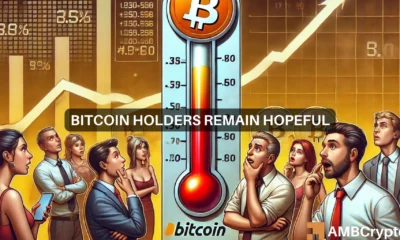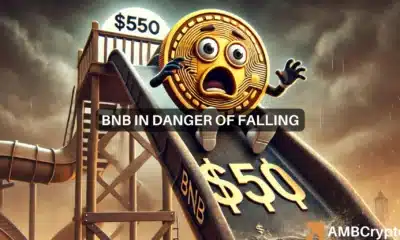Crypto should not be blamed for banking crisis: Charles Hoskinson

- The notion that cryptocurrencies contributed to the banking crisis was rejected by Charles Hoskinson.
- In the last few weeks, there have been numerous bank failures and regulatory seizures.
Charles Hoskinson refuted the idea that cryptocurrency caused the banking crisis, calling digital assets the “escape valve.”
Many financial failures and regulatory seizures have occurred in recent weeks. Illiquidity and overpriced assets on balance sheets are two general causes of the issue. Institutions are required to realize losses on inflated assets to cover withdrawals when connected with a run-on deposit. This erodes their balance sheets.
The Fed announced immediate actions to address the issue on 12 March. Loans up to the par value of held assets will be made available to financial institutions through the Bank Term Financing Program (BTFP), increasing their liquidity.
Hoskinson’s Take on Banks
Hoskinson hinted at the eventuality of banks failing, saying:
“Things that seem permanent and stable, they change quickly, and it’s something that people don’t want to admit, but then after the fact they say that was obvious.”
On his most recent live stream, Hoskinson shared insights about legacy finance. He predicted that banks will inevitably fail, as they are nothing less than a Ponzi scheme, saying:
“You have this business where you take other people’s money; they use that to multiply and create money out of thin air.”
Markets and Contagion https://t.co/pQoknkWaaa
— Charles Hoskinson (@IOHK_Charles) March 20, 2023
He continued, pointing out that this system had led to “evil, disgusting behavior.” Allegedly, TradFi forced a doubling of the money supply in the preceding three years and a 95% decline in the value of the dollar over the previous 100 years. The CEO of Input Output (IO) went on to say that crypto is the “escape valve” from this system since it offers an alternative to its sneaky methods.
Where did cryptocurrencies go wrong?
Even though the crisis was caused by systemic, unsustainable “Ponzinomics,” the idea that cryptocurrency was to blame was gaining ground.
In response, Hoskinson rejected the notion that crypto was at fault. Instead, he highlighted fractional reserve banking and money printing, both of which are essential to maintaining and controlling the monetary system.
The IO CEO listed further causes for widespread corruption, nepotism, the culture of American warfare, and the improper handling of the health problem, none of which have anything to do with digital assets.
The greatest American bank failure since 2008 was the Silicon Valley Bank in California. Credit Suisse has now joined other financial crisis victims like Bear Stearns, which were liquidated at fire-sale prices.
The bank collapses do not appear to be a repeat of the financial crisis. However, AMP Chief Economist Shane Oliver said that they do pose a risk of contagion. Due to worries that their balance sheets would match those of SVB, investors have been selling down regional US banks in particular.
While the market has been tumultuous lately, some segments, such as US IT companies, have held up well, suggesting some investors believe the prospect of a banking crisis will pass.






